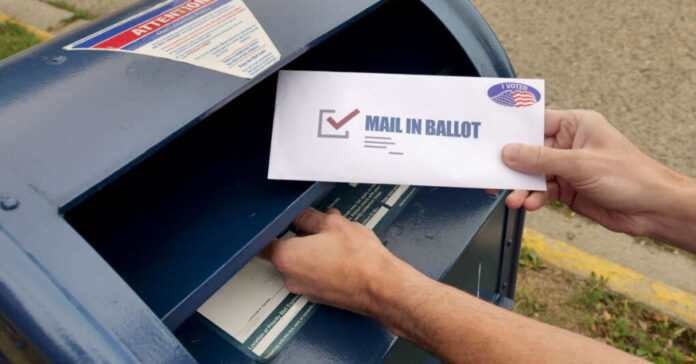
Voter Fraud? Never heard of him, claim city lawyers in Bridgeport, Connecticut, after being presented with videos of ballot stuffing during the Democratic mayoral primary. Superior Court Judge William Clark disagrees and has ordered that the results of the election be tossed out due to newly revealed evidence of election tampering during the mayoral race.
Clark ruled that “the volume of ballots so mishandled is such that it calls the result of the primary election into serious doubt and leaves the court unable to determine the legitimate result of the primary.”
Even more telling are the statistics that Clark cited involving large numbers of absentee ballots in certain voting districts that appear to have been manipulated to favor one candidate and the video footage of multiple instances of people shoving ballots into drop boxes by the box loads, in direct violation of state law.
In Connecticut, collection box votes must be dropped off in person or by a designated individual such as family, caregivers, election officials, or even law enforcement officers.
The legitimacy of current Bridgepoint Mayor Joe Ganim’s narrow victory over challenger John Gomes in September of 2023 is now called into question. Ganim’s victory was secured by only 251 votes out of nearly 8,180 votes cast.
Clark acknowledged that he lacked the authority to postpone or cancel Bridgeport’s general election but says he saw enough evidence of vote tampering to order a do-over of the city’s September primary.
The situation is an unusual one for Connecticut voters, who will vote in the general election on November 7 and then return to the polls later to vote on the rightful Democratic nominee. This bizarre scenario will only unfold if Ganim wins the general election.
City officials’ attorneys argued in a joint brief that the security camera footage lacked concrete evidence of any illegal activity, emphasizing that no voters had come forward to testify about mishandling their ballots. During a recent testimony session before the judge, surveillance footage showed an individual placing stacks of papers into a ballot drop box. The prosecution, representing Gomes, alleges that the person in question is Wanda Geter-Pataky, a supporter of Ganim and the vice chair of the Bridgeport Democratic Town Committee.
In court, Geter-Pataky invoked her Fifth Amendment right against self-incrimination and chose not to respond to questions. Another former City Council member and current mayoral candidate also refrained from answering questions regarding their potential appearance in other video clips showing ballot stuffing at collection boxes.
Ganim, who faced a corruption conviction during his initial term as mayor but managed to reclaim the position after his release from prison through a subsequent election, continues to insist on his innocence regarding any ballot-related misconduct. He has also alleged that campaign workers from the Gomes camp have been involved in violating voting regulations.
He pointed to multiple surveillance videos showing Gomes supporters also stuffing ballot boxes. He urged his supporters to turn out on election day.
Democratic challenger Gomes applauds the judge’s decision, stating that the ruling was a triumph for the city’s residents. He emphasized his campaign’s commitment to upholding the integrity of the democratic process, a sentiment that he noted was echoed by Superior Court Judge William Clark in his decision.
Connecticut State Republicans are using the Bridgeport ballot case to emphasize the need for election reforms, with a particular focus on absentee ballots. Connecticut State Senate Minority Leader Kevin Kelly expressed his concern, pointing to the surveillance videos as confirmation of conservatives’ fears regarding the potential misuse of absentee ballots. He emphasized the importance of restoring trust, faith, and confidence in the electoral system.
Since the 2020 election, data from the Voting Rights Lab, an organization monitoring voting-related legislation and advocating for increased voter access, shows that five states have implemented bans on ballot drop boxes, while six have imposed restrictions on their availability.
Cheri Quickmire, the executive director of Common Cause in Connecticut, argues that the issue does not lie with the ballot boxes themselves. Instead, she suggests that the problem in this specific case is associated with campaign leadership that allows such activities.
Of course, the story is largely ignored by the media. It has, however, gained traction amongst Republicans nationwide, who can’t help but see the parallels between Bridgeport’s election fraud and the “alleged” fraud that cost former president Donald Trump his reelection bid in 2020.
There’s a certain irony in witnessing Democrats grapple with the consequences of their own strategies and machinations. The Bridgeport election fraud incident serves as an opportunity for Democrats to learn from their own missteps as they prepare for fresh new fraud schemes ahead of the 2024 elections.
